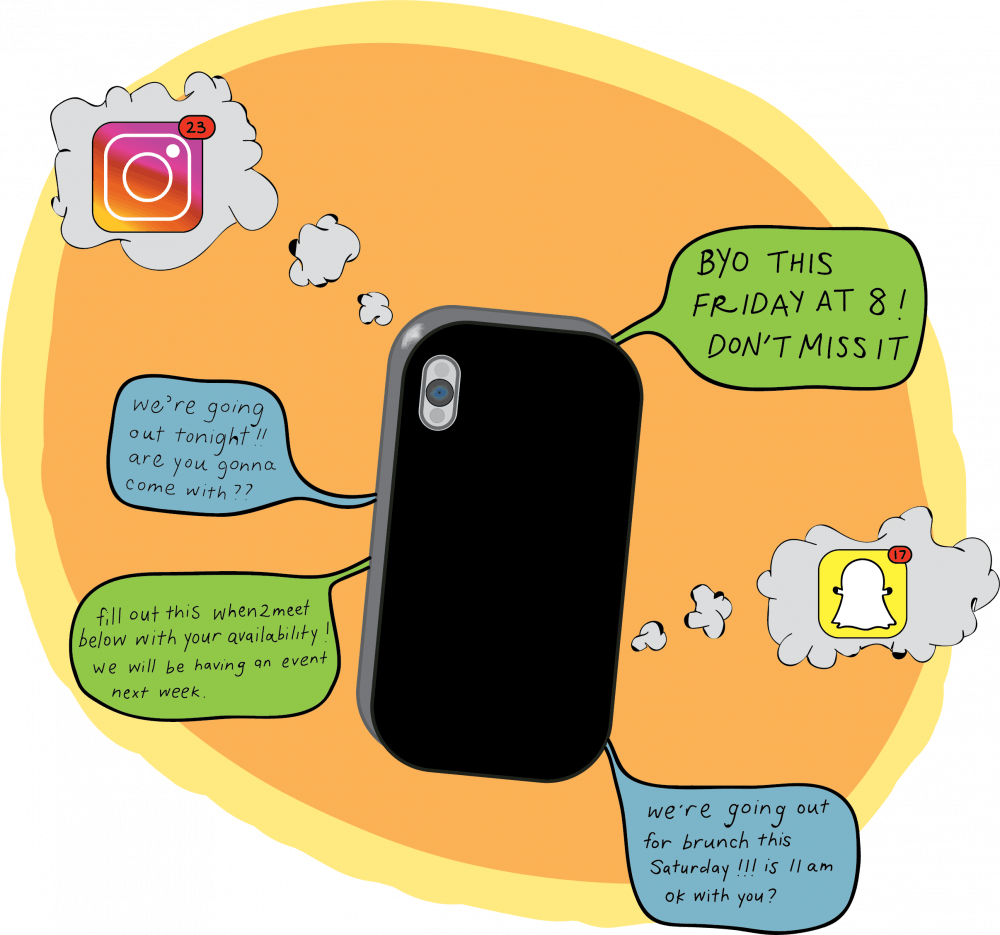Penn has been nicknamed the "Social Ivy," and Penn’s campus culture finds much resonance in the phrase “work hard, play hard.” Although some of us couldn’t help but laugh when Playboy named Penn the number one party school in America in 2014, there’s some truth to the title, even if it is more than a little undeserved. Penn students are mercilessly efficient at packaging their time and squeezing the most out of every last hour of Friday and Saturday night. People fly from classes to BYOs to pregames to frat parties to downtowns and back again, and this sort of social aerobatics is absolutely draining, both to experience and to watch.
Penn’s pre-professionalism is much lamented, but it has consequences that reach far beyond finding the perfect summer internship or landing an interview with Google. Socializing at Penn is directly affected by the extreme, competitive culture that dominates other parts of campus life. Although by no means is every Penn student a major social media influencer, there’s a general desire and pressure to curate a personal aura of popularity, sociability, and sceney-ness. At Penn, it’s difficult to shake the feeling that there are more than just a couple of people who go to parties and downtowns just for the sake of seeing and being seen.
While the social scene on campus ought to serve as a way to blow off steam, an obsessive desire to create a vibrant Snapchat story and take Insta-worthy pics paradoxically adds to the stress of classwork. Especially for the introverted, Penn’s emphasis on late-night shenanigans can serve as a major stressor. Yes, nowhere does it say that attendance is compulsory at the latest Friday nights on campus. But students who choose not to go to such events or venues are seen as cultural outliers and can feel entirely cut off from Penn’s campus culture altogether. This fact could in turn lead them to put themselves in environments and situations that they’re not fully comfortable with, just so they don’t feel left out.

Another high-profile example of Penn’s FOMO problem is spring break. Although the work “break” is in the title, for many it’s anything but — there are flights to catch, Airbnbs to find, and itineraries to set. As we like to joke about, doing nothing is never really considered a viable choice. The social pressure to do something, anything, not only encourages students to make questionable financial decisions, but also alienates low-income students who can’t even afford the plane trip back home and find themselves trapped on a barren, lonely campus.
BYOs or spring break trips to Cancun aren't inherently bad things. In moderation, they can do exactly what they’re supposed to: give everyone a breather from the stresses of classes and everyday life at Penn.
Although Penn has a vibrant social scene, there needs to be a greater cultural commitment to downtime. As Penn students, we are often such rabid time maximizers that we forget that it’s important to reflect, relax, and regenerate. A weekend full of mixers, brunches, and downtowns can be a lot of fun, but weekends where the main agenda is binge watching Netflix, playing cards, or even just ordering off of GoPuff are equally important. Sure, it doesn’t make the most interesting Snapchat or the best Instagram post, but perhaps in between working hard and playing hard, taking a nice, long nap isn’t such a bad thing.

SEE MORE FROM JAMES MORRISON:
JAMES MORRISON is a College freshman from Pipersville, Pa. studying English. His email address is jmorr2@sas.upenn.edu.
SEE MORE FROM JAMES MORRISON:









